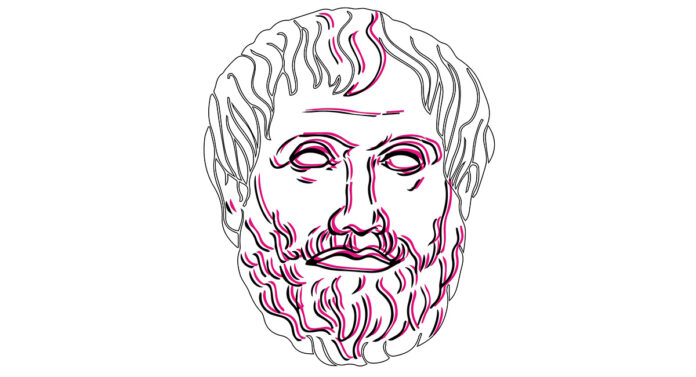L’invasività della tecnologia digitale
Riprendete per cortesia la spigolatura della settimana scorsa. Ponevo il quesito: essendo il digitale per propria potenza invasivo, diffusivo, globale, planetario, totale, avrà come effetto politico un qualche totalitarismo in una delle possibili varianti o in una quale forma inedita tra il moderatamente costituzionale e/o il brutalmente indifferente?
Indubbiamente il potere nelle sue varie modalità usa dispositivi, stratagemmi, strumenti: la spada e l’esercito, la contrattazione, la legge, lo Stato, la retorica e la convinzione, magari subdolamente inculcata. Può il digitale essere un buon strumento per il potere? Assolutamente e pericolosamente sì!
Tecnologia, guerra e sicurezza
Due generali cinesi, Qiao Liang e Wang Xiangsui, in un libro dal titolo Guerra senza limiti. L’arte della guerra asimmetrica fra terrorismo e globalizzazione, riconfigurano, alla fine del secolo scorso, l’arte della guerra partendo dalla considerazione che gli interventi digitali sulle armi da guerra fanno indubbiamente la differenza militare, ma che l’aspetto fondamentale delle guerre future più che le armi belliche sarà l’intervento di internet sui mercati e sulle convinzioni degli utenti. E queste faranno più morti dei missili.
Altro strumento è il controllo collettivo. In una recente indagine in una grande città della Cina è stato chiesto ai cittadini se accettavano di essere continuamente e ovunque controllati da tecnologie digitali abbinate all’intelligenza artificiale. La risposta è stata, per la stragrande maggioranza: sì! Perché? Semplice, il controllo aveva ridotto di molto la micro criminalità.
La sicurezza è uno degli strumenti fondamentali per legittimare il potere anche quando di fatto reprime le libertà fondamentali. Il digitale inoltre permette non solo il controllo assoluto (e il possesso) dei dati, ma anche delle argomentazioni, delle retoriche sociali e dei relativi modi di vita, e quindi inquina i sistemi di delega e rappresentanza, cioè il voto. Inutile far presente l’attuale dibattito tra Usa e Russia sugli esiti delle penultime e ultime consultazioni elettorali, e la inquietante questione politica quanto sociale, in tutti i Paesi, delle fake news.
Un destino ineluttabile?
Tutto questo ci farebbe ritenere che quasi inevitabilmente lo strapotere del digitale non può che configurare una organizzazione politica in vario modo tendente al totalitario (la metafora del grande fratello). Anzi potremmo persino sospettare che l’attuale conflitto tra USA e Cina non sia solo di natura economica ma sostanzialmente imperiale, anche se sappiamo bene che economia e politica sono, soprattutto quando diventano feroci, sorelle. E si sa che gli imperi si identificano con la totalità.
Certo tutto plausibile, ma vanno considerati altri scenari più che possibili, da mettere in gioco, meglio, sui quali impegnarsi, per resistere non tanto al digitale, ma ad alcuni possibili intrecci pericolosissimi tra il digitale e il politico.
Power and technology
The invasivness of digital technology
Please go back to last week gleaning. I asked the following question: being digital by its own power invasive, common, global, planetary, and total, will it have as political effect totalitarianism or some unprecedented form of it such as the moderately constitutional and / or the brutally indifferent?
Undoubtedly, power in its various ways uses devices, stratagems, tools: the sword and the army, the negotiation, the law, the state, the rhetoric, and the conviction, perhaps subtly instilled. Can digital be a good tool for power? Absolutely and dangerously yes!
War and security
At the end of the last century, two Chinese generals, Qiao Liang and Wang Xiangsui, in a book entitled War without Limits. The art of asymmetrical warfare between terrorism and globalization reconfigured the art of war starting from the consideration that digital interventions on war weapons undoubtedly make the difference. However, more than weapons the fundamental aspect of future wars will be the intervention of the internet on the markets and on the beliefs of users, which will kill more than missiles.
Another tool is the collective control. In a recent survey in a large city of China, citizens were asked if they agreed to be continuously controlled by digital technologies and artificial intelligence. For the overwhelming majority, the answer was yes! Why? Simple, control had greatly reduced petty crime. Security is one of the fundamental tools to legitimize power even when it effectively represses fundamental freedoms.
Digital also allows not only absolute control (and possession) of data, but also of arguments, social rhetoric, and related ways of life. Therefore, it pollutes the systems of delegation and representation, that is, the vote. It is useless to mention the current debate between the US and Russia on the results of the second to last and last electoral consultations, and the disturbing political and social question, in all countries, of fake news.
An unavoidable fate?
All this would lead us to believe that almost inevitably the overwhelming power of the digital world cannot but configure a political organization in various ways tending towards totalitarianism (the metaphor of the Big Brother). Indeed, we might even suspect that the current conflict between the US and China is not only of economic nature but essentially imperial, even though we know that economics and politics are, especially when they become ferocious, sisters. Moreover, we know that empires are identified with totality.
Of course, it is all plausible. However, other possible scenarios (to be put into play, or better, on which to engage) must be considered, in order to resist not so much the digital, but some possibly dangerous intertwining between the digital and the political.








